Owning a small yacht is often considered the epitome of luxury and adventure, beckoning both seasoned sailors and aspiring sea enthusiasts alike. It’s not merely about possessing a vessel; it’s about embracing a lifestyle characterized by freedom, exploration, and the boundless expanse of the open water. In this introductory section, we’ll delve into the allure of small yacht ownership, exploring the reasons why it captivates the hearts and minds of individuals across the globe. From the majestic beauty of sun-kissed horizons to the tranquil serenity of secluded coves, small yachts offer a gateway to experiences that transcend the ordinary. Whether it’s the thrill of navigating uncharted waters or the simple pleasure of basking in the gentle rhythm of the waves, owning a small yacht represents a departure from the mundane and a journey into the extraordinary. But the appeal of small yachts extends beyond mere escapism. It embodies a spirit of adventure and discovery, inviting individuals to chart their own course and forge unforgettable memories along the way. Whether it’s embarking on a weekend getaway with loved ones or setting sail on a solo expedition, the possibilities are as limitless as the horizon itself.
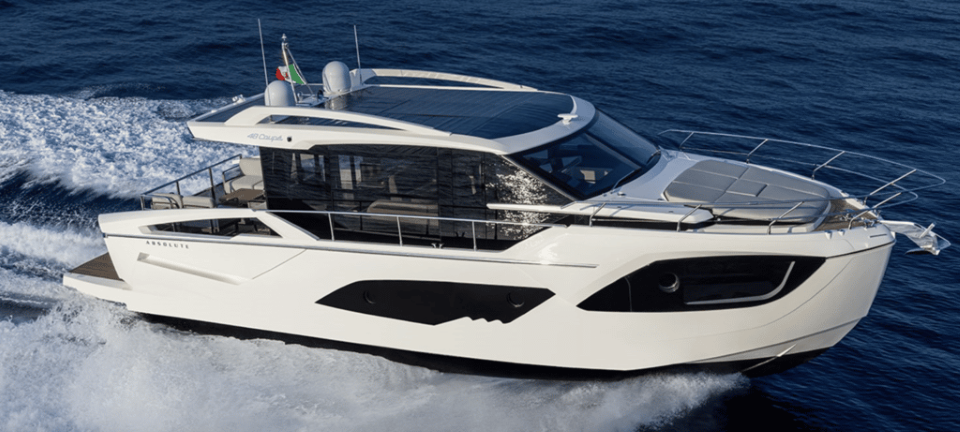
Factors Influencing the Cost
When it comes to determining the price tag of a small yacht, several factors come into play, each contributing to the overall cost in its own unique way. Understanding these factors is crucial for prospective buyers who are looking to make an informed decision about their investment. Let’s explore some of the key factors that influence the cost of a small yacht:
Size and Type of Yacht
One of the primary factors that influence the cost of a small yacht is its size and type. As a general rule, larger yachts tend to come with heftier price tags, as they require more materials and labor to build. Similarly, the type of yacht—whether it’s a sailboat, a motor yacht, or a luxury cruiser—can also impact its cost. While sailboats may be more affordable upfront, motor yachts often come with higher operating costs due to fuel consumption and maintenance requirements.
Brand and Reputation
The brand and reputation of the yacht manufacturer play a significant role in determining its cost. Established brands with a long history of producing high-quality vessels may command higher prices due to their reputation for craftsmanship and reliability. Buyers are often willing to pay a premium for the assurance of owning a yacht from a trusted manufacturer with a proven track record of excellence.
Customization Options
Many yacht buyers opt for customizations to tailor their vessel to their specific preferences and lifestyle. From personalized interiors to state-of-the-art navigation systems, the options for customization are virtually endless. However, these custom features come at a price, with each addition contributing to the overall cost of the yacht. Buyers should carefully consider their customization choices to ensure they align with their budget and priorities.
Additional Features and Amenities
Luxury amenities and features can significantly impact the cost of a small yacht. From spacious cabins and gourmet kitchens to onboard entertainment systems and jacuzzis, these lavish additions can elevate the yachting experience to new heights of comfort and opulence. However, they also come with a hefty price tag, so buyers should weigh the cost of these amenities against their desired level of luxury and convenience.
By considering these factors, prospective buyers can gain a better understanding of what goes into the cost of a small yacht and make an informed decision that aligns with their budget and lifestyle preferences.
Average Prices of Small Yachts
For individuals considering the purchase of a small yacht, understanding the average prices associated with different categories of vessels is essential. Small yachts come in a variety of sizes, configurations, and price ranges, catering to a wide range of budgets and preferences. Let’s explore the average prices you can expect to pay for small yachts across various segments:
Entry-level Small Yachts
Entry-level small yachts typically offer a comfortable cruising experience at a more affordable price point. These yachts are ideal for first-time buyers or those looking to dip their toes into the world of yachting without breaking the bank. Entry-level small yachts generally range in price from $100,000 to $300,000, depending on factors such as size, brand, and amenities. While they may lack some of the luxury features found on higher-end models, entry-level yachts still provide ample opportunities for enjoyment and relaxation on the water.
Mid-range Small Yachts
Mid-range small yachts strike a balance between affordability and luxury, offering a range of amenities and customization options at a moderate price point. These yachts typically fall in the price range of $300,000 to $1 million, making them an attractive option for buyers seeking a higher level of comfort and sophistication without breaking the bank. Mid-range yachts may feature spacious cabins, modern amenities, and advanced navigation systems, providing owners with a luxurious onboard experience without the exorbitant price tag.
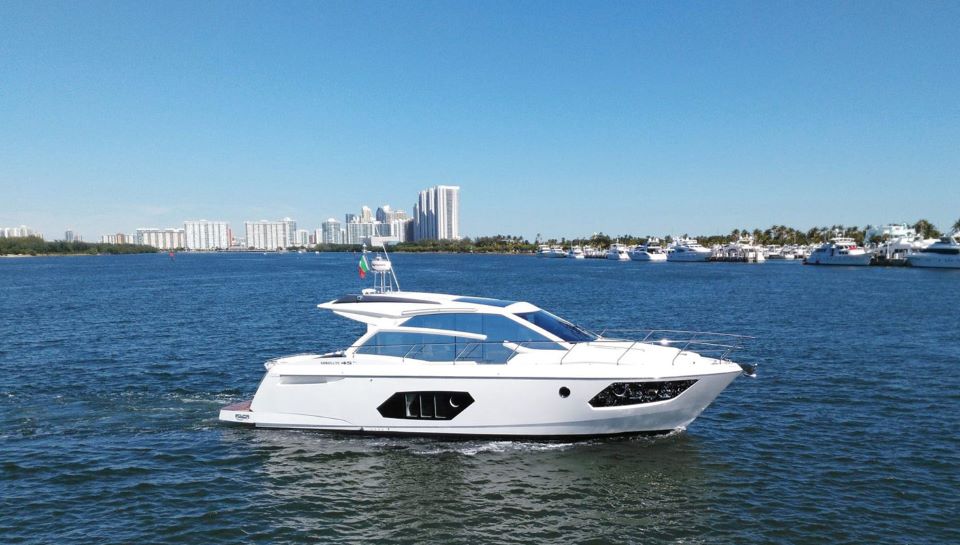
High-end Small Yachts
For buyers seeking the ultimate in luxury and prestige, high-end small yachts offer unparalleled craftsmanship, opulent interiors, and state-of-the-art amenities. These yachts are the epitome of extravagance, with price tags ranging from $1 million to upwards of $10 million or more. High-end yachts boast lavish features such as marble countertops, teak decks, and custom-designed interiors, providing owners with a level of comfort and luxury that is truly unmatched. While the cost of ownership may be steep, the unparalleled elegance and sophistication of high-end small yachts make them a coveted choice for discerning buyers.
By understanding the average prices associated with different categories of small yachts, prospective buyers can better assess their options and make an informed decision that aligns with their budget and lifestyle preferences.
Cost of Maintenance
Owning a small yacht is not just about the initial purchase price; it also entails ongoing expenses for maintenance and upkeep. From docking fees to insurance premiums, the cost of maintaining a small yacht can add up over time. Let’s take a closer look at some of the key factors that contribute to the cost of yacht maintenance:
Docking Fees
Docking fees are a significant expense for yacht owners, especially for those who keep their vessels in marinas or yacht clubs. The cost of docking fees can vary depending on factors such as the size of the yacht, the location of the marina, and the amenities offered. In popular coastal destinations and urban centers, docking fees can be quite substantial, making it essential for owners to budget accordingly.
Insurance
Yacht insurance is essential for protecting your investment against potential risks such as theft, damage, or liability claims. The cost of yacht insurance can vary depending on factors such as the value of the vessel, its use (e.g., recreational or commercial), and the owner’s experience and claims history. While insurance premiums may represent a significant expense, they provide peace of mind and financial protection in the event of unforeseen circumstances.
Repairs and Upgrades
Regular maintenance, repairs, and upgrades are necessary to keep a small yacht in top condition and ensure its safe and reliable operation. From routine engine maintenance to cosmetic repairs and system upgrades, the cost of yacht repairs and upgrades can vary widely depending on the age and condition of the vessel, as well as the scope of work required. Owners should budget for ongoing maintenance expenses to keep their yachts in optimal condition and avoid costly repairs down the line.
By factoring in the cost of maintenance when budgeting for yacht ownership, prospective buyers can ensure that they are prepared to cover the ongoing expenses associated with maintaining their vessel. While the cost of maintenance may seem daunting at first, the joy and freedom that come with owning a small yacht are well worth the investment.
Financing Options
While owning a small yacht is undoubtedly a luxury, it doesn’t have to be out of reach for those who may not have the means to purchase one outright. Fortunately, there are various financing options available to help prospective buyers make their yachting dreams a reality. Let’s explore some of the common financing options for small yacht purchases:
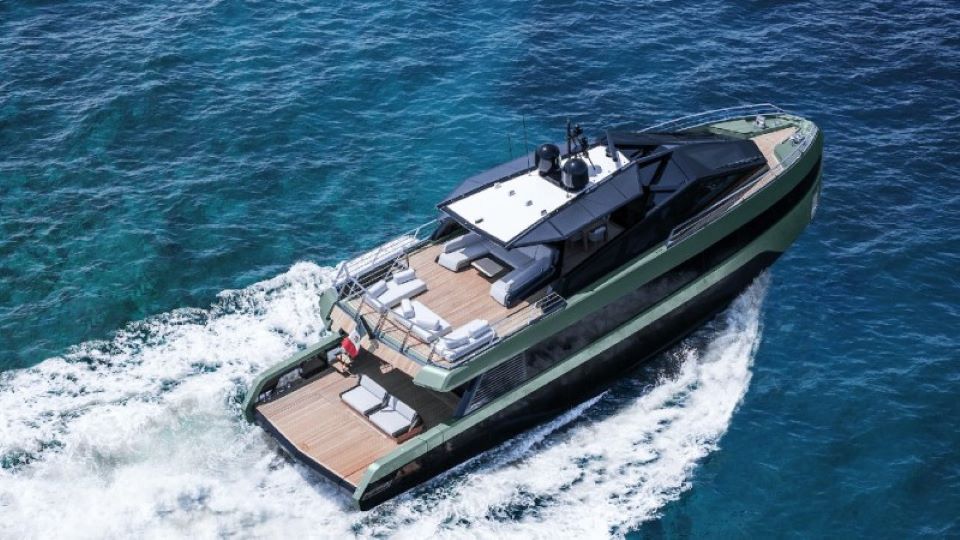
Loans and Financing Plans
Many banks and financial institutions offer loans and financing plans specifically designed for yacht purchases. These loans typically allow buyers to borrow a portion of the yacht’s purchase price and repay it over time with interest. Loan terms can vary, with options available for both fixed and variable interest rates and various repayment periods. Prospective buyers should shop around and compare loan offers to find the best terms and rates that suit their financial needs and preferences.
Leasing and Chartering Options
For individuals who may not want to commit to full ownership, leasing or chartering a yacht can be an attractive alternative. Leasing arrangements allow individuals to use a yacht for a specified period in exchange for monthly lease payments, similar to renting a property. Chartering, on the other hand, involves renting a yacht for a short-term voyage or vacation, with the option to hire a crew for added convenience. Both leasing and chartering options provide flexibility and affordability for individuals who may not be ready to take on the financial responsibility of full ownership.
Fractional Ownership
Fractional ownership is another option for individuals who want to enjoy the benefits of yacht ownership without bearing the full cost alone. In a fractional ownership arrangement, multiple individuals or families share ownership of a single yacht, dividing the purchase price and ongoing expenses among themselves. This allows each owner to use the yacht for a certain number of days per year, with the schedule typically determined in advance. Fractional ownership provides a cost-effective way to enjoy the pleasures of yacht ownership while minimizing the financial burden and sharing the associated expenses with others.
By exploring these financing options, prospective buyers can find a solution that aligns with their budget and lifestyle preferences, making the dream of yacht ownership a reality.
Benefits of Owning a Small Yacht
Owning a small yacht is more than just a status symbol; it’s a lifestyle choice that offers a multitude of benefits for those who are fortunate enough to experience it. From the freedom to explore new destinations to the social connections forged along the way, owning a small yacht opens up a world of possibilities. Let’s explore some of the key benefits of small yacht ownership:
Lifestyle Enhancement
Perhaps the most obvious benefit of owning a small yacht is the lifestyle enhancement it brings. With a yacht at your disposal, you have the freedom to set sail whenever the mood strikes, whether it’s for a weekend getaway or an extended voyage. You can explore secluded coves, anchor in tranquil bays, and discover hidden gems that can only be reached by sea. Owning a small yacht allows you to escape the hustle and bustle of everyday life and immerse yourself in the serenity of the ocean, creating memories that will last a lifetime.
Investment Potential
While yachts are often seen as luxury items, they can also be viewed as investments. Well-maintained yachts in good condition have the potential to retain their value over time and even appreciate in certain cases. By carefully selecting a high-quality vessel from a reputable manufacturer, owners can not only enjoy the pleasures of yacht ownership but also potentially recoup their investment down the line. Additionally, yachts can serve as valuable assets that can be sold or traded for profit, further enhancing their investment potential.
Social Status and Networking Opportunities
Owning a small yacht is often associated with a certain level of prestige and status in society. It signals to others that you have achieved a certain level of success and affluence, opening doors to exclusive social circles and networking opportunities. Yacht clubs, marinas, and sailing events provide opportunities for owners to connect with like-minded individuals who share their passion for the sea. Whether it’s swapping stories with fellow sailors or rubbing elbows with industry insiders, owning a small yacht can broaden your social horizons and enrich your personal and professional life.
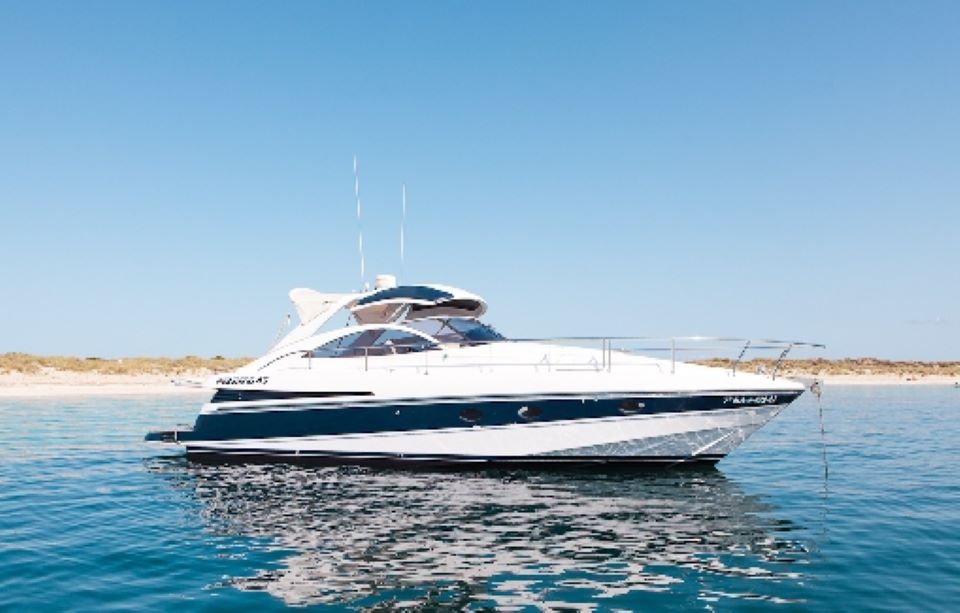
Drawbacks of Owning a Small Yacht
While the allure of owning a small yacht is undeniable, it’s essential to consider the drawbacks and challenges that come with yacht ownership. From the initial cost to ongoing expenses and time commitments, owning a small yacht is not without its drawbacks. Let’s explore some of the potential downsides of owning a small yacht:
High Initial Cost
One of the most significant drawbacks of owning a small yacht is the high initial cost of purchase. Even entry-level yachts can come with a substantial price tag, and high-end models can cost millions of dollars. For many prospective buyers, the upfront cost of purchasing a yacht may be prohibitive, requiring careful financial planning and budgeting to afford.
Ongoing Expenses
Beyond the initial purchase price, yacht ownership entails a range of ongoing expenses that can add up over time. From docking fees and insurance premiums to maintenance and repairs, the cost of owning a small yacht can be considerable. Owners must budget for these ongoing expenses to ensure they can afford the upkeep of their vessel and avoid financial strain down the line.
Time Commitment for Maintenance and Operation
Owning a small yacht requires a significant time commitment for maintenance and operation. From regular cleaning and maintenance tasks to navigating the waters and planning voyages, yacht ownership demands time and attention from its owners. Additionally, owners must undergo training and certification to operate their vessel safely and legally, adding to the time commitment involved.
Tips for Purchasing a Small Yacht
Purchasing a small yacht is a significant investment, both financially and emotionally. To ensure a smooth and successful buying experience, it’s essential to approach the process with careful consideration and attention to detail. Here are some tips to help guide you through the yacht-buying process:
Set a Budget
Before you start shopping for a yacht, take the time to establish a realistic budget based on your financial situation and long-term goals. Consider not only the purchase price of the yacht but also the ongoing expenses associated with ownership, such as maintenance, insurance, and docking fees. Setting a budget will help you narrow down your options and focus on yachts that are within your price range.
Research Different Models and Brands
Yachts come in a variety of sizes, configurations, and brands, each offering its own unique features and benefits. Take the time to research different yacht models and brands to find the one that best suits your needs and preferences. Consider factors such as size, amenities, performance, and reputation when comparing yachts. Reading reviews, visiting boat shows, and consulting with industry professionals can help you make an informed decision.
Consider Pre-owned Options
Buying a pre-owned yacht can be a cost-effective way to get more bang for your buck. Pre-owned yachts are often priced lower than new models and may come with additional features and upgrades already included. However, it’s essential to conduct a thorough inspection of any pre-owned yacht you’re considering to ensure it’s in good condition and free from any major issues or defects.
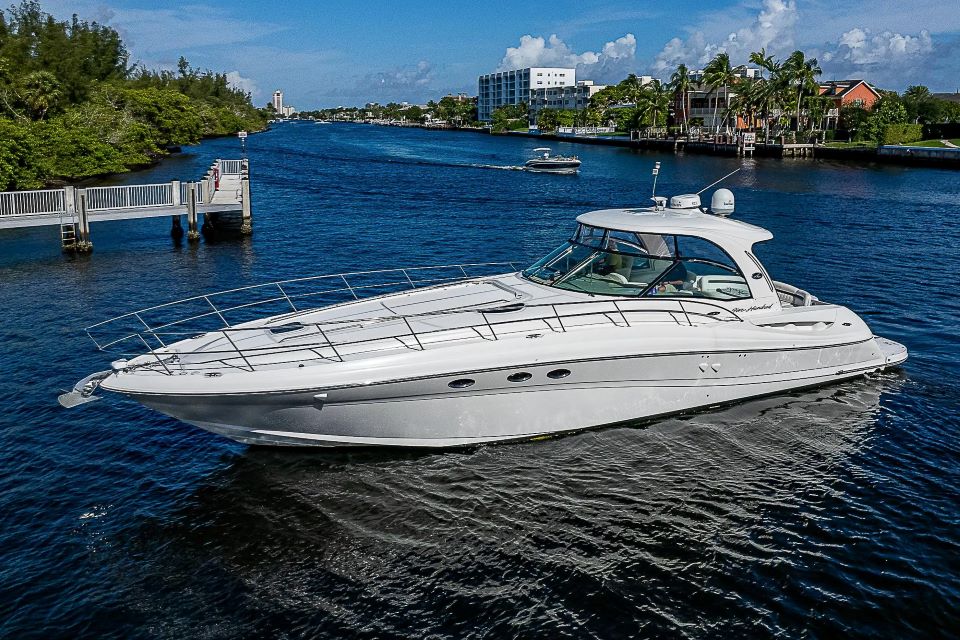
Inspect Thoroughly Before Buying
Before finalizing the purchase of a yacht, be sure to conduct a comprehensive inspection to assess its condition and functionality. Hire a qualified marine surveyor to inspect the hull, engine, electrical systems, and other critical components to ensure they’re in good working order. Additionally, take the time to test drive the yacht on the water to assess its performance and handling firsthand.
By following these tips, you can navigate the yacht-buying process with confidence and find the perfect vessel to suit your needs and lifestyle.
Key Takeaways
- Definition of Small Yachts: Small yachts are typically between 20 and 40 feet in length, suitable for personal use, weekend getaways, or extended trips.
- Types of Small Yachts: Includes sailing yachts and motor yachts, with specific subcategories like day cruisers, weekenders, and pocket cruisers.
- Factors Influencing Cost: The cost of a small yacht depends on size, brand, whether it’s new or used, features, and maintenance requirements.
- Price Ranges: Entry-level small yachts range from $30,000 to $100,000, mid-range from $100,000 to $300,000, and high-end from $300,000 to over $1 million.
- Hidden Costs: Potential yacht owners should consider additional expenses like insurance, docking fees, fuel costs, and regular maintenance.
- Financing Options: Purchasing a yacht can be financed through personal savings, loans, or shared ownership programs via yacht clubs.
- Overall Cost Consideration: Thoroughly understanding both initial and ongoing costs is essential for making an informed decision about yacht ownership.
Conclusion
In conclusion, the decision to purchase a small yacht is not one to be taken lightly. It involves careful consideration of factors such as budget, lifestyle preferences, and long-term goals. While yacht ownership offers numerous benefits, including the freedom to explore new destinations, the potential for investment, and the social connections forged along the way, it also comes with its fair share of challenges and responsibilities. From the high initial cost to ongoing expenses and time commitments, owning a small yacht requires careful planning and financial management. However, for those who are willing to invest the time and resources, the rewards of yacht ownership can be truly unparalleled, offering a lifetime of adventure, luxury, and freedom on the open seas.
FAQ
What are the ongoing expenses associated with owning a small yacht?
Owning a small yacht entails various ongoing expenses, including docking fees, insurance premiums, maintenance costs, and fuel expenses. These costs can add up over time, so it’s essential for prospective buyers to budget accordingly.
Can I finance the purchase of a small yacht?
Yes, many banks and financial institutions offer loans and financing plans specifically for yacht purchases. These financing options allow buyers to spread out the cost of ownership over time, making yacht ownership more accessible to a wider range of individuals.
Are there any tax benefits to owning a yacht?
Depending on your location and circumstances, there may be tax benefits associated with yacht ownership. For example, some jurisdictions offer tax incentives for boat owners, such as deductions for interest paid on yacht loans or exemptions from sales tax on vessel purchases.
How can I ensure that I’m getting a good deal on a pre-owned yacht?
When purchasing a pre-owned yacht, it’s essential to conduct a thorough inspection to assess its condition and value. Hiring a qualified marine surveyor to inspect the vessel can help identify any issues or defects and ensure that you’re getting a fair deal.
What are the benefits of fractional ownership for small yachts?
Fractional ownership allows multiple individuals or families to share ownership of a single yacht, dividing the purchase price and ongoing expenses among themselves. This arrangement provides a cost-effective way to enjoy the benefits of yacht ownership while minimizing the financial burden and sharing the associated expenses with others.
